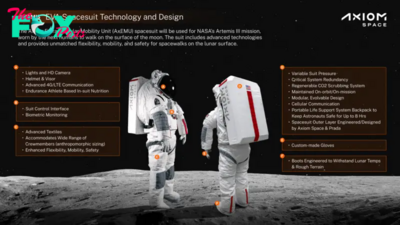Science
Asteroid that exploded over Berlin was fastest-spinning space rock ever recorded
An asteroid that tore through the atmosphere over Germany in January was spinning faster than any other near-Earth object ever recorded, new research suggests.
The space rock, dubbed 2024 BX1, turned into a fireball and exploded over Berlin in the early hours of Jan. 21. Although small asteroids on collision courses with Earth are typically detected only when they crash into the atmosphere, scientists spotted this one roughly three hours before impact.
That's not the only way 2024 BX1 was unusual, according to a paper published to the preprint database arXiv on April 5. Researchers think the asteroid, which was Traveling 31,000 mph (50,000 km/h), was rotating once every 2.6 seconds — the fastest spin ever seen for an asteroid.
Previously, the record for the fastest-spinning asteroid belonged to a flying rock called 2020 HS7, which showed a rotation period of 2.99 seconds. That asteroid measured between 13 and 24 feet (4 to 8 meters) in diameter, which is slightly bigger than 2024 BX1 and may explain why the latter spun faster.
Asteroids spin for several reasons, such as being propelled back into space after a collision. Because they are more compact, smaller asteroids tend to spin faster than larger ones. "They have internal strength, so they can rotate faster," lead author Maxime Devogèle, a physicist at the University of Central Florida who works with the European Space Agency, told New Scientist.
Related: Researchers just found more than 1,000 new solar system objects hiding in plain sight
Devogèle and his colleagues studied the rotational speeds of three asteroids, including 2024 BX1, using images they took as the objects approached Earth. The other two asteroids, 2023 CX1 and 2024 EF, were described based on close calls with our planet recorded on Feb. 13, 2023, and March 4, 2024, respectively.
-

 Science2d ago
Science2d agoInside Capitol Hill’s Latest UFO Hearings
-

 Science2d ago
Science2d agoYou Won’t Want to Miss the Leonid Meteor Shower. Here’s How and When You Can See It
-

 Science3d ago
Science3d agoHere’s What Trump’s Win Means for NASA
-

 Science6d ago
Science6d agoWhy Risky Wildfire Zones Have Been Increasing Around the World
-

 Science6d ago
Science6d agoIt’s Time to Redefine What a Megafire Is in the Climate Change Era
-

 Science1w ago
Science1w ago4 Astronauts Return to Earth After Being Delayed by Boeing’s Capsule Trouble and Hurricane Milton
-

 Science1w ago
Science1w agoThe Elegance and Awkwardness of NASA’s New Moon Suit, Designed by Axiom and Prada
-

 Science1w ago
Science1w agoSpaceX Launches Its Mega Starship Rocket. This Time, Mechanical Arms Catch It at Landing



























